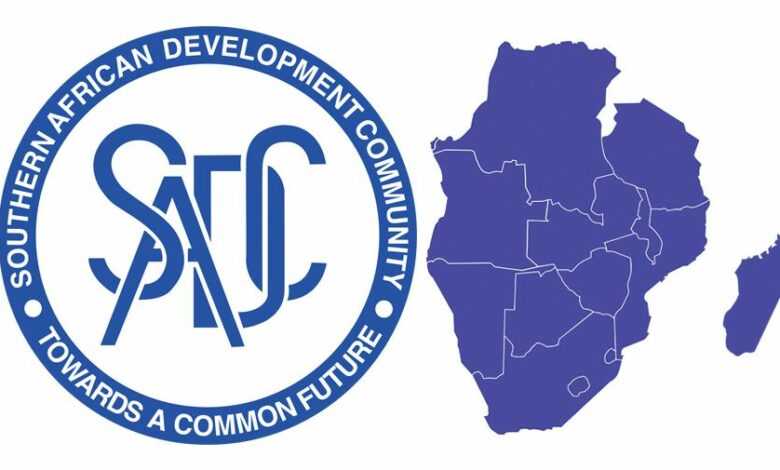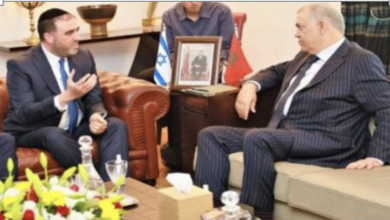African Countries Reject the Legitimacy of SADC’s Unilateral Actions: Renewed Support for Morocco’s Territorial Integrity and Clear Rejection of Separatist Manipulations

ALDAR/
Four African countries that are members of the Southern African Development Community (SADC) have strongly denounced what they described as a legal and ethical breach by the bloc’s executive secretariat, following its signing of a suspicious agreement with the so-called “Sahrawi Republic” without consulting or gaining approval from member states.
Surprise Agreement Sparks Wave of Discontent
On April 2, 2025, at the initiative of South Africa, the SADC Executive Secretary signed a memorandum of understanding with the separatist entity known as the “SADR,” at the organization’s headquarters in Botswana. This move, made without any coordination with other member states, sparked widespread dissatisfaction and triggered a series of official angry responses from countries that support Morocco’s territorial integrity.
Comoros: Firm Stance and Unquestionable Sovereignty
In a verbal note addressed to the SADC Secretariat, the Comoros expressed its “great astonishment” at the signing of the agreement, affirming that its position on the Moroccan Sahara remains unchanged. It recalled the joint statement signed with Moroccan Foreign Minister Nasser Bourita in New York, in which it unequivocally reaffirmed its support for Morocco and its full sovereignty over its southern provinces, considering the Moroccan autonomy initiative as the only realistic solution to the conflict.
The Comorian diplomacy firmly rejected the “exploitation of SADC beyond its geographical scope,” pointing out that the organization’s charter confines its operations to the Southern African region and does not authorize it to engage in regional disputes beyond this framework. It warned that such interventions undermine SADC’s credibility and compromise its role as a platform for regional integration and cooperation.
Eswatini: Steadfast Support and a Clear Legal Position
For its part, the Kingdom of Eswatini did not hesitate to reject the agreement signed with the “SADR,” deeming it “legally non-binding.” In a memorandum issued by its Ministry of Foreign Affairs, Eswatini declared that it “does not recognize the contents of the agreement and considers itself not a party to it.” It also reiterated its “unconditional” support for Morocco’s autonomy initiative, viewing it as the only practical and implementable solution.
Eswatini expressed concern over South Africa’s attempts to politicize the Sahara issue and impose a separatist agenda at the expense of regional solidarity, especially at a time when Morocco remains committed to a peaceful resolution under UN auspices.
Zambia: This Memorandum Does Not Bind Us
Likewise, Zambia, in an official statement from its Ministry of Foreign Affairs, clarified that the agreement signed with the “SADR” does not represent it in any way, emphasizing that it “does not consider it legally binding.” Zambia reiterated its strong support for Morocco’s autonomy plan, which it regards as “the only serious and feasible solution.”
Zambia, which opened a Consulate General in Laayoune in 2020, was among the first African nations to demonstrate concrete diplomatic support for Morocco’s sovereignty over the Sahara.
Malawi: Breaking Free from Influence, Standing Firm
The Republic of Malawi also promptly issued a memorandum rejecting the contents of the signed agreement, stating that “Malawi is not bound by it and will not comply with it in any form.” It confirmed its support for Morocco’s sovereignty over its southern provinces and sees autonomy as a practical and comprehensive solution to the conflict.
Echoing the positions of the other three countries, Malawi condemned South Africa’s interference and its attempts to dominate SADC’s collective decision-making. It stressed that the era of impositions is over and that African nations must make decisions based on international legitimacy and the interests of their peoples—not narrow political agendas.
Towards a Clear Continental Shift
The successive and unequivocal reactions from the Comoros, Eswatini, Zambia, and Malawi reveal a strategic shift in the stances of several African countries, which are gradually freeing themselves from the political influence of Johannesburg and Algiers. This transformation strengthens the continent’s support for Morocco’s territorial integrity and signals the failure of efforts to drag regional organizations into systematic political manipulation.
Moroccan Diplomacy: A Vision Guided by Royal Insight
The growing diplomatic momentum surrounding the Moroccan Sahara issue is the result of the wise leadership of His Majesty King Mohammed VI, who has placed Africa at the heart of Morocco’s foreign policy. Through realistic alliances built on cooperation and mutual respect, Morocco has secured steadfast positions that reinforce its legitimacy at both the continental and international levels.
What happened within SADC is not merely an “administrative slip,” but a real test of member states’ resolve and their ability to stand against manipulation and division. The firm positions taken by the four countries mark a new victory for Moroccan diplomacy and point to a new African era defined by sovereignty, realism, and unity.





